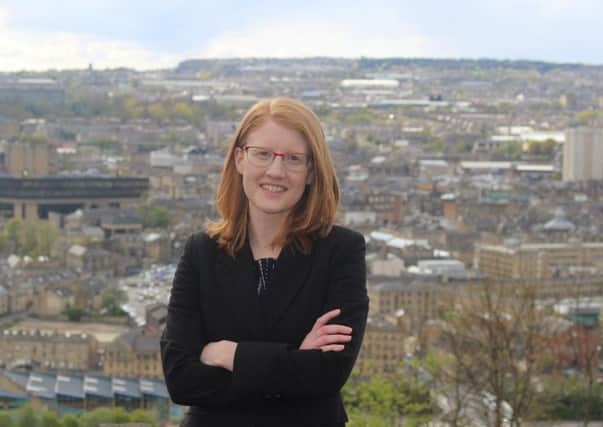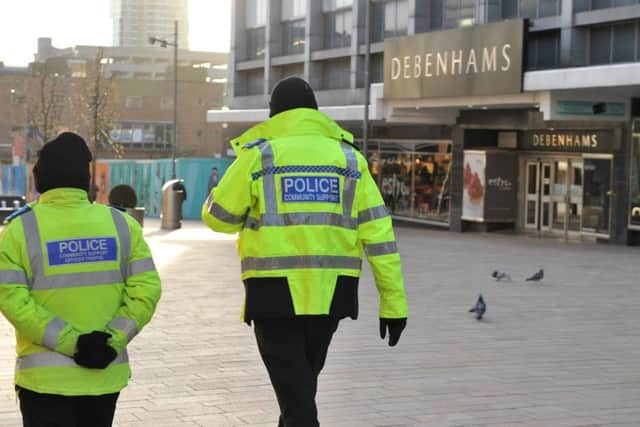Holly Lynch: Giving police the help they need in testing times


To give a sense of the pressures facing the force, on any one day in West Yorkshire there is one police officer on duty for every 2,097 members of the public. On average, the force will make 136 arrests every day, with a staggering 43 of those related to domestic violence.
They will attend 38 house burglaries, 44 thefts from vehicles, 16 thefts of vehicles, four serious violent crimes, seven robberies, 57 assaults, 17 sexual offences and 159 incidents of anti-social behaviour, and deal with 141 incidents of domestic abuse in total.
Advertisement
Hide AdAdvertisement
Hide AdNon-recent child sexual exploitation and abuse investigations now account for 33 per cent of investigations. A third of all the investigative capacity in the force is dealing with non-recent CSE. There were 184 offences relating to modern-day slavery in 2016, compared with just 19 three years ago.


However there has been a particularly disturbing increase in the discharge of firearms in West Yorkshire over the past two years, with firearms predominantly being used by organised criminal gangs as a means of resolving disputes and of intimidating rivals and innocent members of the public alike.
It was a firearm that facilitated the murder of our friend and colleague Jo Cox by the right-wing extremist Thomas Mair. Sadly, we are no strangers to extremism in West Yorkshire, with several Prevent priority areas presenting a continuously evolving threat for the police to assess and manage.
For all the great things about West Yorkshire, the prevalence of extreme ideology and violent and organised crime means that our firearms capabilities are incredibly important.
Advertisement
Hide AdAdvertisement
Hide AdThe Government announcement in April 2016 that they were setting aside £143m of funding in order to hire an extra 1,000 armed officers by spring 2018 was welcome and would have reversed the effects of the 1,000 armed officers lost between 2010 and 2016. However, only 650 of those officers have been recruited so far.


I want to ask specifically about authorised firearms officers, and about variations in the duration and the type of training they receive. With the exception of counter-terrorist specialist firearms officers, who train for much longer, I am aware that the length of training of firearms officers to meet armed response vehicle (ARV) standards varies between 10 and 12 weeks in different forces, but it is accredited by the College of Policing.
However, the requirements for other firearms officers, such as Ministry of Defence police or diplomatic protection officers, are different, and they may train for in the region of four weeks to meet different standards.
If the threat level increases to critical and we deploy Operation Temperer, and all AFOs – authorised firearms officers – with significant variations in training and experience are redeployed all over the country, how do we manage their inter-operability?
Advertisement
Hide AdAdvertisement
Hide AdOf the around 6,250 authorised firearms officers in the UK, what proportion are trained to ARV standards and what proportion do not meet that standard? In the event of Operation Temperer being deployed, I fear that some firearms officers could find themselves in situations for which they have not trained.
As the uplift is proving slower to deliver than expected, would it not make sense to ensure that all AFOs are trained to ARV standards?
Finally, Ministers will be well aware that we are running into a number of challenges and differences of opinion in relation to the Assaults on Emergency Workers (Offences) Bill or ‘Protect the Protectors’ Bill, which will be back for its Report and Third Reading on April 27.
From my experiences of shadowing the front line, I have felt the increased vulnerability that comes when officers are regularly single-crewed; there are simply fewer of them and risks come with that.
Advertisement
Hide AdAdvertisement
Hide AdI have shared horror stories on several occasions about emergency service workers having been spat at and about the anxiety of having to wait for test results, take anti-viral treatments as a precaution and, on occasion, adhere to restrictions about interacting with close family and friends based on advice given by medical professionals.
The Bill’s purpose is to alleviate those fears for 999 and NHS workers, wherever and however we can, and my colleague Chris Bryant, who has done sterling work leading on the Bill, and I are open to any and all means of getting there.
I therefore ask the Policing Minister to continue to engage with us and other MPs to keep that dialogue going between now and April 27, as we seek to do right by those dedicated emergency service workers, who have high expectations of this Bill, in order to protect them.
Holly Lynch is the Labour MP for Halifax. She spoke in a Commons debate on police funding – this is an edited version.